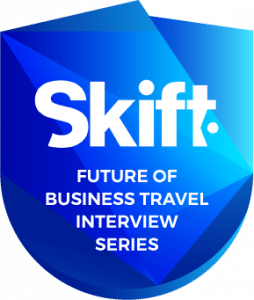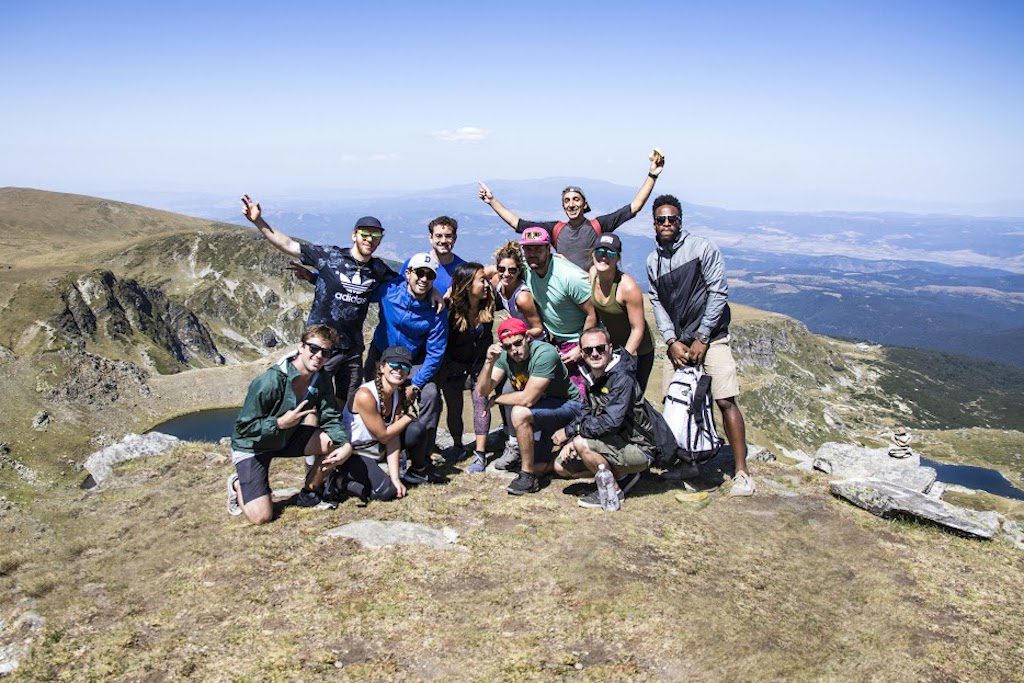Skift Take
Remote Year flips the average business trip on its head, making it more about the destination rather than the nature of the work itself. As flexibility becomes more important for business travelers, the company sees increasing interest from employees and managers alike.
 Corporate travel has not done a good job at solving the problems faced by actual business travelers. Smaller corporate travel companies, along with travel providers and technology startups, are working hard to find solutions to the most enduring problems across the sector.
Corporate travel has not done a good job at solving the problems faced by actual business travelers. Smaller corporate travel companies, along with travel providers and technology startups, are working hard to find solutions to the most enduring problems across the sector.
In this interview series, we will break down the silos between travel sectors to find out from leading travel executives how they are working to make the business travel experience more enjoyable for travelers and simpler for the companies sending employees on the road.
As the idea of mixing business and leisure, so-called bleisure, gets more popular, more employers are beginning to see the benefits. In fact, bleisure has become top of mind for startups in corporate travel, as employees add extra days onto business trips, reserving that time to put down the work and explore a new destination.
This movement has coincided with another important trend: working remotely. Technology like Zoom, Slack, and even email itself has made it easy for travelers to keep in touch with bosses back home as they network with new contacts in person.
Remote Year is at the intersection of these two trends. Started by Greg Caplan in 2014, the company allows professionals to travel the world while still doing their normal 9-to-5 jobs. Wildly popular with employees themselves, Caplan said the biggest hurdle has been convincing companies to go along with it.
But Caplan is seeing a shift, with more employers realizing the value of giving workers this flexibility. Just last week, Remote Year raised $5 million in funding from Lighthouse Partners, a global investment management firm. Caplan talked to Skift about how he plans to use that money, and how he sees corporate travel evolving.
This interview has been edited for clarity and length.
Skift: It seems like a pretty difficult thing to pull off, having your average office worker travel all around the world while still keeping their day job. How did you land on this concept?
Greg Caplan: Well, really it comes down to the growth in digital technology. In theory, you can work from wherever, and people are using that flexibility in all kinds of new and interesting ways. For some, they want to spend more time with family. But for so many people they want to travel the world.
So what we do marries those two things together in a very unique way. More and more people value travel in ways that they never did before. And more and more people have the flexibility to work from anywhere.
What we do is very, very specific, though. We don’t provide vacation travel. We provide a very unique form of travel, which is work travel. We’ve done a whole bunch of different things in order to make that as successful as possible.
Skift: I’ve talked to people in corporate housing before, and they always stress the importance of having top-notch facilities. Things like Wi-Fi, work spaces, household amenities — they all have to be just right so that employees can still get their job done. How do you provide that while moving people to locations all over the world?
Caplan: When it comes to office facilities, in most cases we partner with a local co-working space. In places where they don’t exist, we’ve actually built our own. In Lisbon, Portugal, for instance, we were in the neighborhood of Barrio Alto. There wasn’t a high-quality co-working space, so we built one. Similarly, in Split, Croatia, we wanted to be on the beach, but they didn’t have a co-working space that we could use to make people successful while they’re there. So we spent a bunch of money to build out a co-working space that is unbelievable and people love it. It’s actually won some awards for co-working spaces.
Over the years we’ve been building more and more spaces, which is one of the biggest things we offer travelers. We’ve been partnering with property owners in order to build the right kinds of apartments. The question is always: How do we make infrastructure that will help people be really successful and comfortable in a sustainable system?
I mean, if you travel and you’re trying to get work done, it can be challenging, right? You need to scramble around to find internet connectivity. You need to figure out where you’re going to go to get work done. There’s so much you have to do to plan all of the logistics. And we really solved all those problems for people to make that as approachable as we can. And we’re doing that in 12 cities across the world.
Skift: So you just got some investment money. How do you plan to use it going forward?
Caplan: We want to really invest more in our core cities and continue building out the infrastructure that we have in place. We also want to build out potentially additional cities.
And the other piece of it is really continuing to build out the whole experience. Building out the technology, so people will have a seamless experience on the ground and also building out our ability to reach out to these folks.
Skift: Okay, this is what I really want to know. How do you get employers to actually let their workers do this?
Caplan: Yeah. We’ve been investing a lot in that part of things. There are so many people who want to come and do this and they say, ‘I don’t even know where to start.’ But at this point we’ve had over 2,500 people go through out work travel program, so we’ve learned a lot from them, about how our program helped them, and what their employers liked about the program.
Now we’ve actually brought on a team of people to support employees who are having that initial conversation with their companies. So when they come to us, the employees say, ‘I want to do this, and I don’t know how to manage that with my company.’ We actually have a team dedicated now to helping them have that conversation and get permission to have this kind of experience.
Skift: So how do you sell this to employers? What do you tell them?
Caplan: Well, from an employer perspective, there’s a couple core benefits, right? Number one is recruiting. It’s a very competitive talent marketplace and offering employees the perk of global travel really differentiates you.
The second is retention. If your employees know that they can have this kind of experience — but that they’d have to stick around for two years first — this is a great way to incentivize people to stay at the company longer.
And finally, it’s really about investing in the future of these employees. Think about leaders of the future. What do they need? Well they need to develop their leadership skills, they need to develop their skills in innovation and entrepreneurship. So it’s incredibly valuable for them to see all these different experiences. To see how cultures look different, how they look similar. That really inspires their creativity to think about new and different things. And that kind of creativity and understanding of innovation really helps with building a future leader.
The Daily Newsletter
Our daily coverage of the global travel industry. Written by editors and analysts from across Skift’s brands.
Have a confidential tip for Skift? Get in touch
Tags: bleisure, corporate travel, ctir, remote year
Photo credit: A group of employees pose for a photo while traveling with Remote Year. Company founder Greg Caplan has seen a shift as more employers allow workers the flexibility to work remotely. Remote Year
